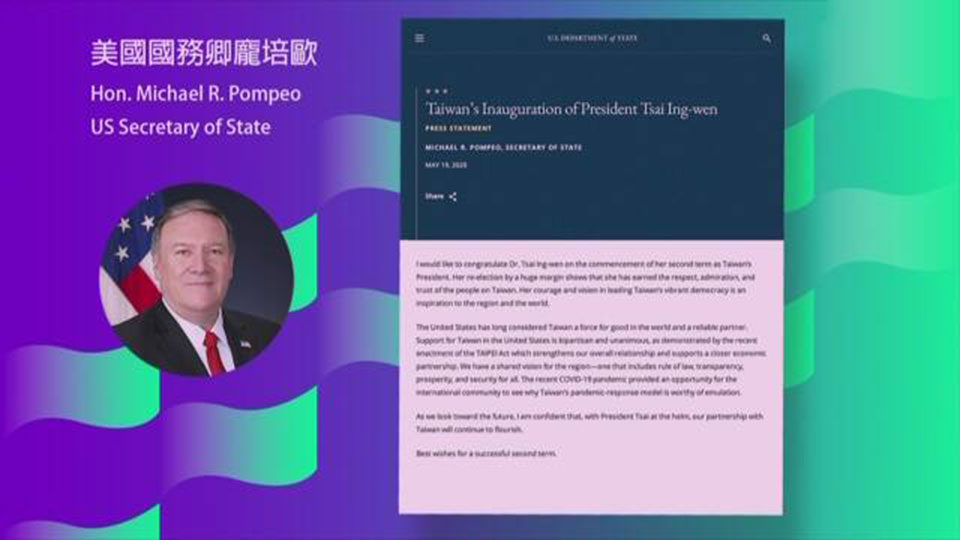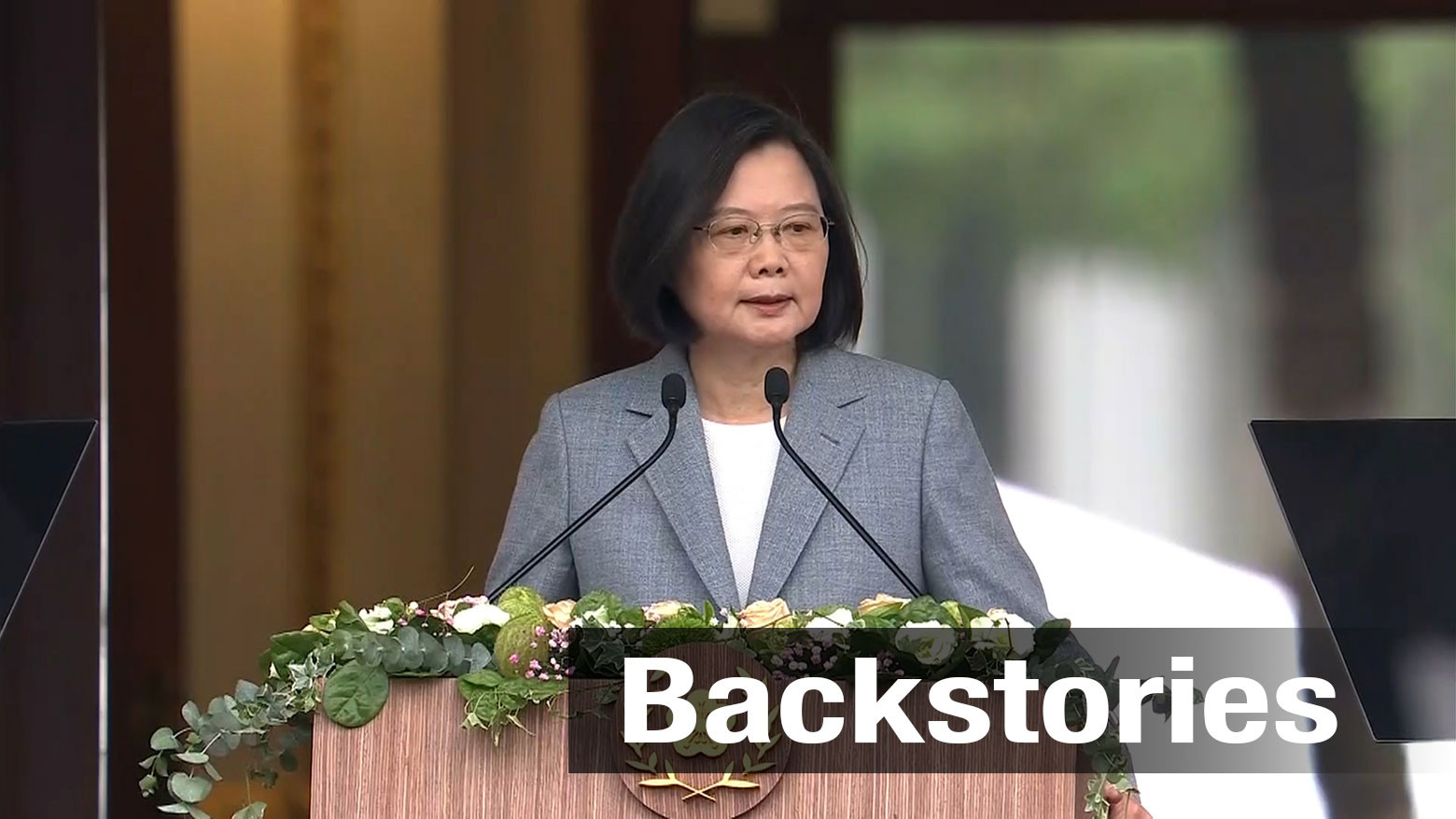Tsai’s administration was quick to come up with measures to contain the coronavirus. As of May 20, there had been just 440 cases and seven deaths recorded in Taiwan.
Tsai said Taiwan was being viewed as a success story, a reliable partner, and a force for good in the world.
But her speech came just two days after the start of the World Health Organization’s annual meeting—a meeting from which Taiwan was absent. The island is not a member of the United Nations, so it needs an invitation to join as an observer. Despite the plaudits for Tsai’s handling of the coronavirus outbreak, there was no invitation. Beijing blocked it, insisting that Taiwan has no right to attend because it’s part of China.
A restrained opposition to China
Tsai addressed the China issue in her speech, saying “We will not accept the Beijing authorities’ use of ‘one country, two systems’ to downgrade Taiwan and undermine the cross-strait status quo.” She also suggested she wanted talks with Chinese President Xi Jinping on equal footing.
But she spoke less about the issue than she did four years ago, according to Ogasawara Yoshiyuki, a professor at Tokyo University of Foreign Studies and an expert on Taiwanese politics.
“She devoted less time to it, and didn’t make any excessively provocative statements,” he says. “I got the impression that she used as few words as possible to assert her position.”

Economic measures
Tsai used part of her address to talk about Taiwan’s flagging economy. Though she has brought the coronavirus under control, the tourism and service industries have taken a devastating hit.
“We need to continue to take early action on economic relief and revitalization, and do whatever it takes to maintain stable economic growth,” she said.
The IMF has downgraded its forecast for Taiwan’s 2020 economic expansion by 4%.
Tsai pointed to areas of optimism, saying the pandemic has shown that Taiwanese teams have proven that they are capable of working with world-class technologies to produce reagents and develop new drugs and vaccines. She also touted the strong IT sector, pledged to foster the biotech and medical technology industries, and said she would negotiate trade and investment agreements with other countries to expand Taiwanese industry across the globe.
Professor Ogasawara says Tsai believes economic performance can cement her party’s political footing as more people in Taiwan identify as Taiwanese and become wary of China's influence.

The challenges ahead
Tsai said Taiwan would continue seeking to participate in international organizations and deepen ties with the U.S., Japan, and European countries.
That road is likely to be bumpy. In Tsai’s first term, the number of nations having diplomatic relations with Taiwan fell from 22 to 15 as China turned up the pressure. Ogasawara believes that pressure is only likely to grow, especially with the Chinese Communist Party celebrating the 100th anniversary of its founding next year.

